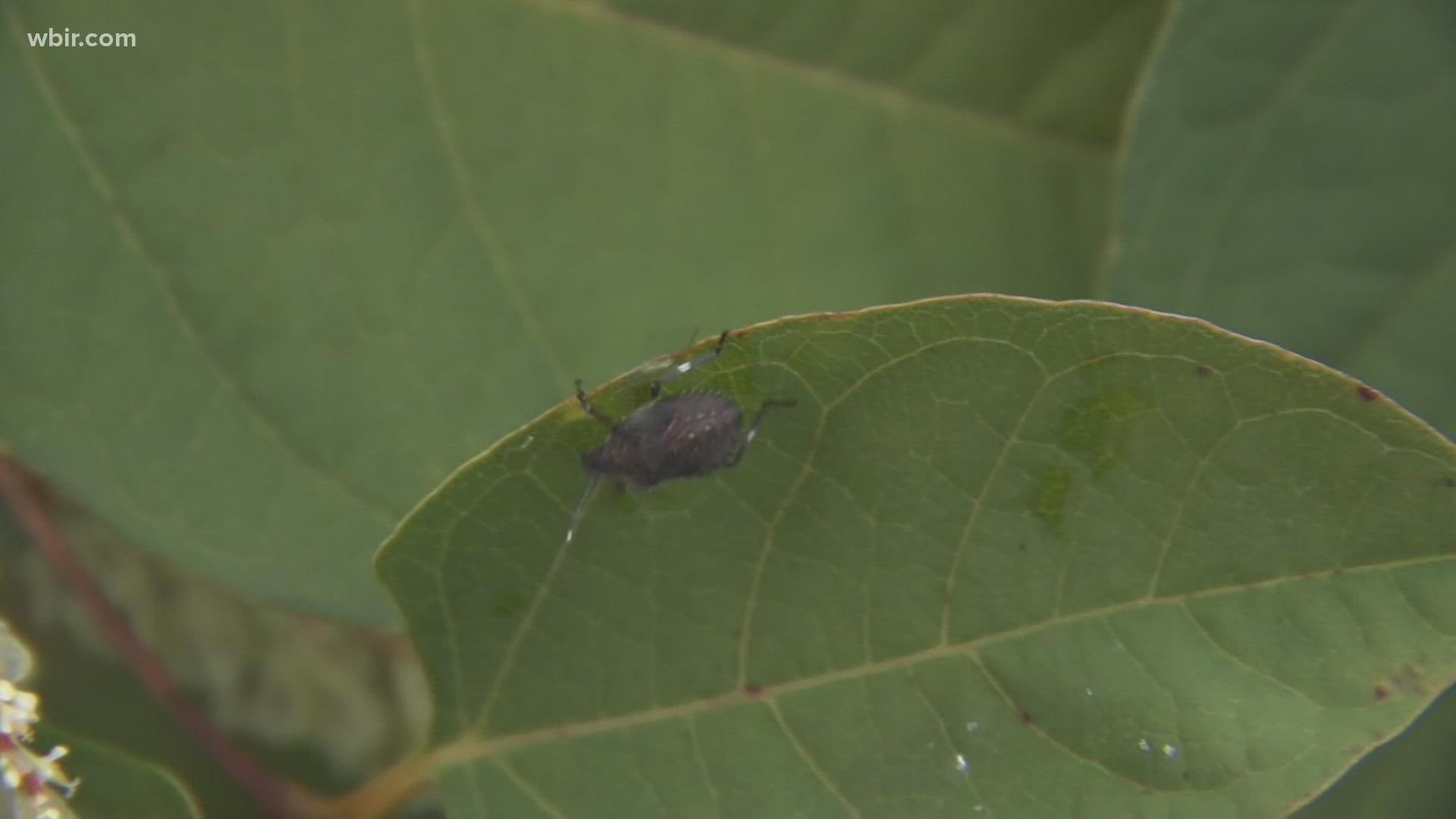KNOXVILLE, Tenn. — When the leaves begin to change colors in East Tennessee, stink bugs begin to sneak inside people's homes along with other pests to escape the colder weather.
It's that time of year again. The bugs aren't dangerous, but definitely live up to their name if you try to attack them. The one thing you absolutely should not do if you see one in your home is crush it -- because it will emit an awful, skunk-like odor when frightened or killed.
The cooler fall weather sends stink bugs indoors, which they will try to make their way in through open windows, cracks and eroded weather stripping. The best way to deal with them is to lock them our of your home by resealing any cracks or gaps.
If you see one hanging on a wall in your home, you can either try to suck it up with a shop vacuum (the vacuum tray might not smell so great afterward), or try to gently knock it into a cup filled with soapy water.
The brown marmorated stink bug, which is the one that you'll most likely find inside your home, is an invasive species that is relatively new to East Tennessee, having been first formally confirmed in Knox County a little more than a decade ago in 2008.
Here's 10 Other Things To Know About Stink Bugs
1. They're not from around here.
Brown marmorated stink bugs are native to Japan, China and Korea and were accidentally imported to the Allentown, Pennsylvania, region in the late 1990s. They have no natural predators in the U.S.
2. They're multiplying.
They've spread to 47 states and four Canadian provinces in 2020, up from 43 states in 2016.
3. They really stink.
People have described the smell as anything from skunk to dirty socks to coriander, and squashing them releases the odor. Do so at your own risk.
4. They're ruining agriculture.
Six states in the Mid-Atlantic reported "severe nuisance and agricultural damage" in June 2014, with farmers reporting total losses of tomato, apple and corn crops in 2013, said research entomologist Tracy Leskey of the U.S. Department of Agriculture. The stink bugs' effect can cause "scabs" and bruising on fruit and vegetables.
5. They find creative ways into houses.
If there are cracks in screens, door jams, roofs or walls, stink bugs will find them. To make your home stink bug-proof, check around windows and doors for small openings, both indoors and outdoors.
6. They like plants.
If you live near a wooded area or have a vegetable garden, your home may have a higher risk of stink bugs, said Ray Miller, owner of Upstate X-Treme Solutions pest control. If you have potted plants in your home, that's where stink bugs might congregate.
7. They won't bite you, harm your pets, or ruin your carpet.
Stink bugs don't pose any danger to humans or animals, and won't destroy indoor non-plant material. The bugs just want a warm window where they can sun themselves.
8. Vacuum them at your own risk.
Vacuuming stink bugs makes for a quick and clean disposal, but your vacuum might not smell so great afterward.
9. You can buy or make stink bug traps.
Stink bugs like light and they can't swim, so a desk lamp with a tub of soapy water underneath works as an impromptu stink bug trap. You can also buy lighted stink bug traps at local hardware stores.
10. If all else fails, call an exterminator.
Ray Miller said exterminators can spray the exterior of a severely infested house with chemicals that kill insects on contact. While there are pesticide products on the market that can legally be used against stink bugs inside the home, they are not the most effective option, as stinkbugs may live within walls and pesticides can be harmful to humans and pets inside, according to the National Wildlife Federation.
Read more: To read more about how stinkbug populations are growing nationally and what is being done to stop them, go to StopBMSB.org, hosted by the U.S. Department of Agriculture.

